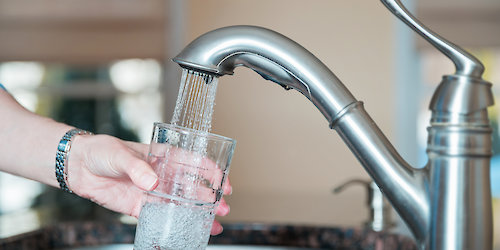Water & Sewer

We provide water and sewer service to those living in the Town of Mountain Village and only water service to those living in the Ski Ranches and Skyfield subdivisions.
In providing you with water and sewer service, we follow strict water and sewer rules and regulations. This policy is in place to administer water and sewer operations and to promote your health, safety, prosperity, security and general welfare. The rules and regulations also outline several issues of importance such as:
- Use of sewer and water system
- Application for service
- Construction of service lines
- Hearing and appeal procedures
For those in need of water and sewer services, please complete our water and sewer tap application.
Water & Sewer Rates
During the irrigation months of June, July, August and September, the water base allowance is 14,000 gallons. From January to May and October to December, the single-family base water allowance is 8,000 gallons. For water rates, including usage rates above the base allowance, and the flat year-round rate for sewer, refer to our water and sewer rates.
Meter Reading & Payment
Water meters are read near the end of each month and your bill is based on that consumption. In order to make a payment, review your payment options, which does include online bill pay. For billing questions, please call (970) 369-6408.
Water & Sewer Emergencies
For water and sewer emergencies, please contact dispatch at (970) 417-6049.
For non-emergency issues, please contact (970) 728-5946 Monday through Friday during our business hours from 8 a.m. to 5 p.m.
Fats, Oils & Grease Disposal
Excess fats, oils and grease (FOG) task our sewage collection and treatment system. In addition, FOG creates a hazard for wastewater operators and increases the risk of a sewer backup in homes. Please follow these few simple rules to help keep your sewage running efficiently, decrease the risk of a sewer back up and overflow, and give operators a safer place to work. Thank you.
- Wipe pots, pans and dishware with a paper towel prior to dishwashing.
- Compost food waste or put it in the garbage. Do not put food down the drain even if you have a garbage disposal.
- When you have liquid waste cooking oil, either soak up the oil using a paper towel or newspaper and place the towel or newspaper in the trash. Alternatively, you may pour the cooled oil into a bottle that can be closed tightly. When the bottle is full, the oil can be recycled at an appropriate.